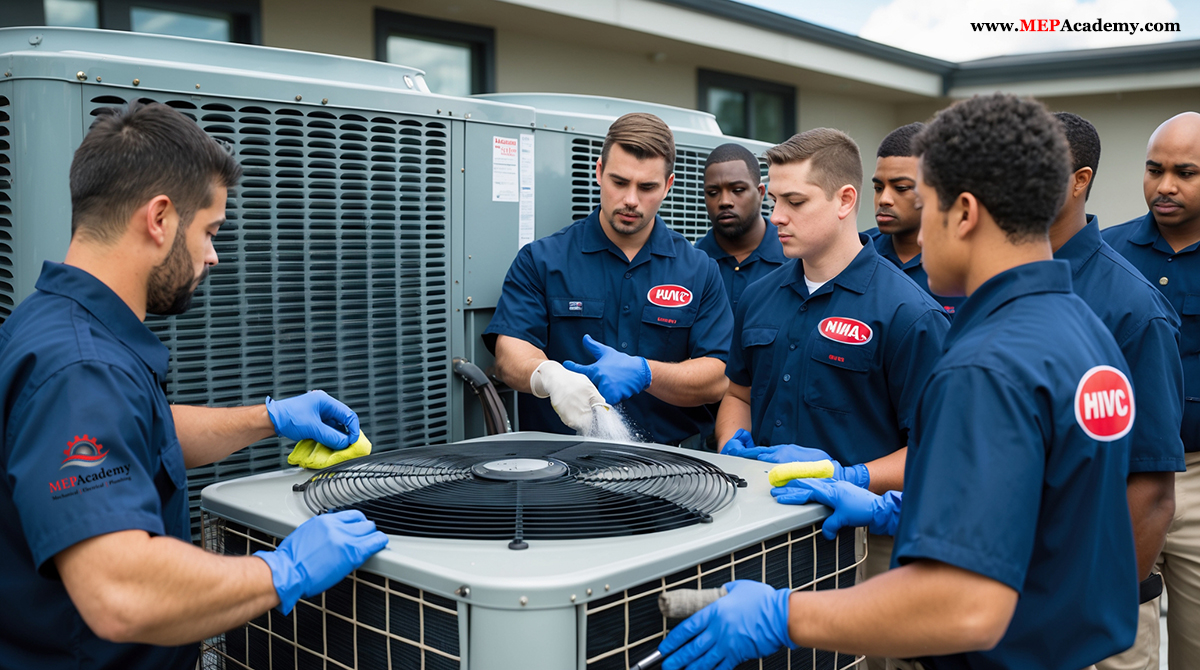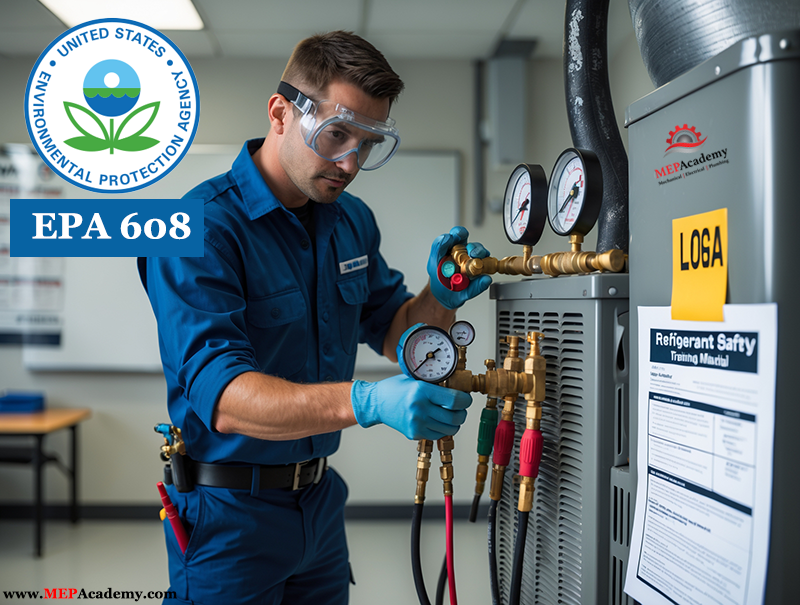If you’re looking for a hands-on, high-paying career with strong job security, HVAC technician training is the perfect starting point. Whether you’re new to the trades or looking for a career change, becoming an HVAC or AC technician opens the door to steady work, good pay, and a fulfilling technical skill set.
In this guide, we’ll cover everything you need to know about HVAC training, including certifications, program options, online vs in-person paths, and how to get started.
Table of Contents
- What Is HVAC Technician Training?
- Why Proper AC Tech Training Matters
- How to Become an HVAC or AC Technician
- Online vs In-Person HVAC Technician Training
- How Long Does HVAC Training Take?
- How Much Does HVAC Technician Training Cost?
- HVAC and AC Technician Career Outlook
- Start Your HVAC Technician Training Today
- Ready to Get Started?
What Is HVAC Technician Training?

HVAC technician training—also known as AC technician training or air conditioning technician training—prepares you to install, repair, and maintain heating, ventilation, and air conditioning systems in residential and commercial buildings.
Whether your focus is heating or cooling systems, certified techs are always in demand.
Why Proper AC Tech Training Matters
Modern HVAC and AC systems are more advanced than ever, with digital thermostats, smart zoning, and energy-efficient components. Employers are looking for well-trained techs who understand both the theory and the hands-on side of the trade.
A solid AC tech training program helps you:
- Qualify for higher-paying roles
- Pass key certifications
- Build confidence in diagnostics and installation
- Work safely and effectively
How to Become an HVAC or AC Technician
1. Earn Your High School Diploma or GED
This is typically the minimum requirement for any HVAC or air conditioning technician training program.
2. Enroll in an Accredited Training Program

Choose from:
- Trade schools
- Technical colleges
- Community college programs
Most HVAC or AC tech training programs range from 6 months to 2 years and cover:
- Basic refrigeration and electrical theory
- Safety practices
- Hands-on lab work
- EPA 608 certification prep
- Troubleshooting HVAC systems
Tip: Some programs brand themselves specifically as “AC Technician Training” but include HVAC fundamentals as well.
3. Get Certified

At minimum, you’ll need your EPA Section 608 Certification to work legally with refrigerants. Other valuable certifications include:
- NATE Certification
- HVAC Excellence
- State-specific HVAC licenses (if required)
4. Gain Experience Through Apprenticeship or Entry-Level Work
An HVAC apprenticeship typically lasts 3–5 years and combines classroom learning with paid, on-the-job training. Many programs help place you with local contractors.
Online vs In-Person HVAC Technician Training
Online HVAC technician training has grown in popularity—especially for career changers or people working full-time. It’s great for learning the theory and fundamentals.
However, HVAC is a hands-on field, so you’ll need to complete in-person labs or partner with a local contractor to gain real-world experience. Look for hybrid programs if possible.
How Long Does HVAC Training Take?
- Certificate program: 6–12 months
- Associate degree: 18–24 months
- Apprenticeship: 3–5 years
If you go the fast-track route, you could be job-ready in under a year.
How Much Does HVAC Technician Training Cost?
- Certificate programs: $1,200 – $5,000
- Associate degree programs: $7,000 – $15,000
Many schools offer financial aid, grants, and employer-sponsored options—especially if you’re working for a company that wants to invest in your training.

HVAC and AC Technician Career Outlook
The HVAC industry is booming, with new construction, green energy, and smart home systems all driving demand. According to the U.S. Bureau of Labor Statistics:
- Job Growth: 6% through 2032 (faster than average)
- Median Pay: $55,000/year
- Top Techs: $70,000+ depending on location and certifications
Opportunities exist in residential service, commercial maintenance, construction, and even building automation.
Start Your HVAC Technician Training Today
Whether you’re diving into AC technician training or pursuing full HVAC certification, the right training can jumpstart a solid, well-paying career in the trades.
Ready to Get Started?

Download our FREE HVAC Technician Starter Kit to hit the ground running.
Includes:
- Daily Technician Checklist
- Career Roadmap PDF
🔗 Related Resources (Internal Links)
How to Read HVAC Plans – Beginner Course





